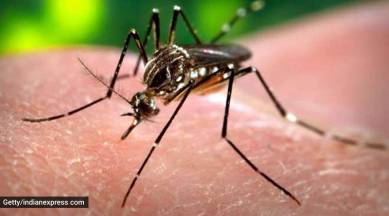📣 For more lifestyle news, click here to join our WhatsApp Channel and also follow us on Instagram
This is what happens to your body if you get infected with dengue multiple times
National Dengue Day: Dengue is caused by four different strains of the virus. While recovering from one strain provides lifelong immunity to that specific strain, subsequent infections with different strains can lead to more severe symptoms

Every year, May 16 is observed as National Dengue Day in the country as part of an effort led by the Ministry of Health and Family Welfare. The main objective of this initiative, according to the National Health Portal of India, is to raise awareness about dengue and enhance preventive measures and preparedness to control the disease before the transmission season begins. Dengue, which is a mosquito-borne viral disease, is a serious health concern with an estimated 390 million dengue infections occurring around the world, resulting in up to 36,000 deaths, the World Mosquito Program stated.
While dengue is already recognised for its significant health repercussions, the impact on the body becomes even more severe when an individual experiences the infection for the second or subsequent time. Explaining the same, Dr Sheela Murali Chakravarthy, Director, Internal Medicine, Fortis Hospital, Bannerghatta Road, Bengaluru said, “Repeated dengue fever infections can impact the body’s immune response.”
The expert shared that dengue is caused by four different strains of the virus. While recovering from one strain provides lifelong immunity to that specific strain, subsequent infections with different strains can lead to more severe symptoms.
Agreeing, Dr Monalisa Sahu, Consultant, Infectious Diseases, Yashoda Hospitals, Hyderabad said that this phenomenon can be explained by the Halstead theory of antibody-mediated immune enhancement, where the neutralising antibodies against the particular serotype are not protective against the other serotypes. “Ideally speaking, a person can get dengue four times in his lifetime as dengue has 4 serotypes, and infection with one serotype provides lifetime immunity against dengue with that particular serotype, but there can always be some variations in medical science,” she shared.
The repeated occurrence of dengue infections can harm the body in various ways, Dr Chakravarthy shared.
*Dengue Hemorrhagic Fever (DHF) and Dengue Shock Syndrome (DSS): In some cases, subsequent infections can result in more severe forms of the disease, causing bleeding, organ damage, and posing a potentially life-threatening risk.
*Organ damage: Dengue can harm organs such as the liver, heart, and lungs. Repeated infections can exacerbate this damage, leading to long-term health complications.
*Immune system dysfunction: Multiple dengue infections can disrupt the normal functioning of the immune system, increasing susceptibility to other infections and impairing overall immune response.
To prevent repeated dengue fever infections, it’s important to take precautions to avoid mosquito bites, which is the primary mode of transmission for the virus, Dr J Harikishan, Senior General Physician, Kamineni Hospitals, Hyderabad said. “This includes using mosquito repellent, wearing protective clothing, and keeping windows and doors closed or screened. It’s also essential to eliminate mosquito breeding sites by getting rid of standing water, which is where mosquitoes lay their eggs.”
Dr Harikishan further shared the following dos and don’ts you must keep in mind:
*Do wear protective clothing, such as long-sleeved shirts and pants
*Do keep windows and doors closed or screened
*Do eliminate standing water where mosquitoes breed
*Don’t rely solely on insecticide sprays to control mosquitoes
*Don’t travel to areas with high rates of dengue fever if possible
*Don’t take aspirin or other non-steroidal anti-inflammatory drugs (NSAIDs) if you suspect you have dengue fever, as these can increase the risk of bleeding.
📣 For more lifestyle news, follow us on Instagram | Twitter | Facebook and don’t miss out on the latest updates!
📣 For more lifestyle news, click here to join our WhatsApp Channel and also follow us on Instagram